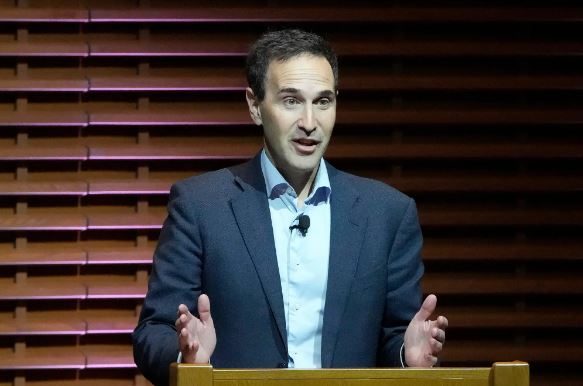Stanford University has announced the appointment of Jonathan Levin, an economist and current dean of the graduate business school, as its next president. Levin’s extensive association with the university, dating back to his undergraduate days in the 1990s, played a significant role in his selection, emphasizing his deep understanding of Stanford’s culture.
The decision to appoint Levin is also seen as a move to bring stability to the institution amidst ongoing turmoil. Stanford has been grappling with protests related to the Israel-Hamas conflict and controversy surrounding its previous president, Marc Tessier-Lavigne.
Jerry Yang, the chair of Stanford’s board of trustees, highlighted the importance of Levin’s distinguished academic record, familiarity with Stanford’s ethos, and integrity in navigating the university through politically sensitive times. The selection committee, comprising 20 members, sought a leader with a deep understanding of academia and a proven track record in the field, qualities that Levin embodies.
Levin’s academic background is extensive, having earned multiple degrees and serving on Stanford’s faculty since 2000. He is the son of Richard Levin, the former president of Yale University. Levin’s research spans various topics, including early admissions at selective colleges, subprime lending, and the impact of financial incentives on health care delivery.
As dean of the business school since 2016, Levin has been instrumental in promoting entrepreneurship education in developing countries through initiatives like Stanford Seed. His commitment to global engagement and innovative approaches to education aligns with Stanford’s ethos of fostering academic excellence and societal impact.
In addressing campus controversies, Levin emphasized the importance of free speech and fostering dialogue among students with diverse perspectives. He advocated for universities to refrain from making statements on current events and instead focus on encouraging students to engage critically and form their own opinions.
Despite efforts to maintain institutional neutrality, Stanford continues to face challenges related to free speech and diversity. Recent incidents, including protests over invited speakers and a lawsuit alleging discrimination, underscore the complexities of navigating campus dynamics.
Levin’s presidency comes at a pivotal time for Stanford as it seeks to address internal challenges while maintaining its reputation as a leading academic institution. He will succeed Richard Saller, who has served as interim president since Tessier-Lavigne’s resignation.
Tessier-Lavigne’s departure followed a university report that raised concerns about the quality of research conducted under his supervision. While the report refuted allegations of misconduct related to a specific study, it raised broader questions about research practices at Stanford.
As Levin prepares to assume the role of Stanford’s 13th president, he faces the task of restoring confidence in the institution’s leadership and addressing systemic issues to ensure academic excellence and integrity. His background in academia, coupled with his understanding of Stanford’s culture, positions him to lead the university through its current challenges and towards a brighter future.

